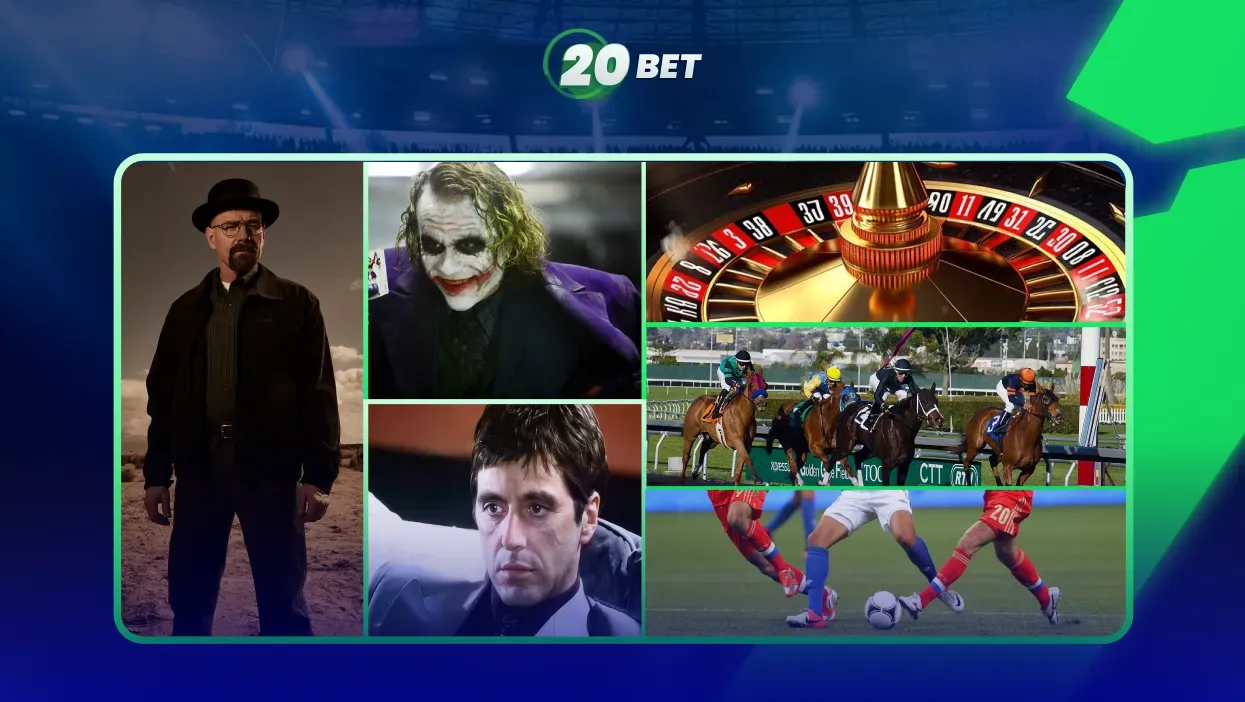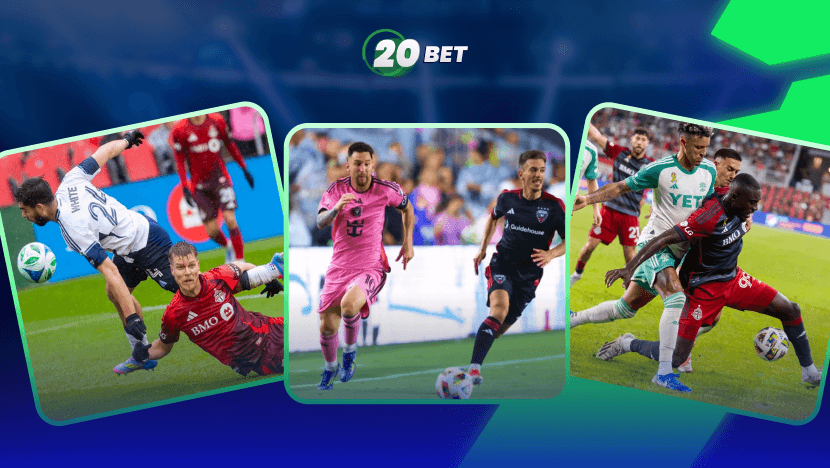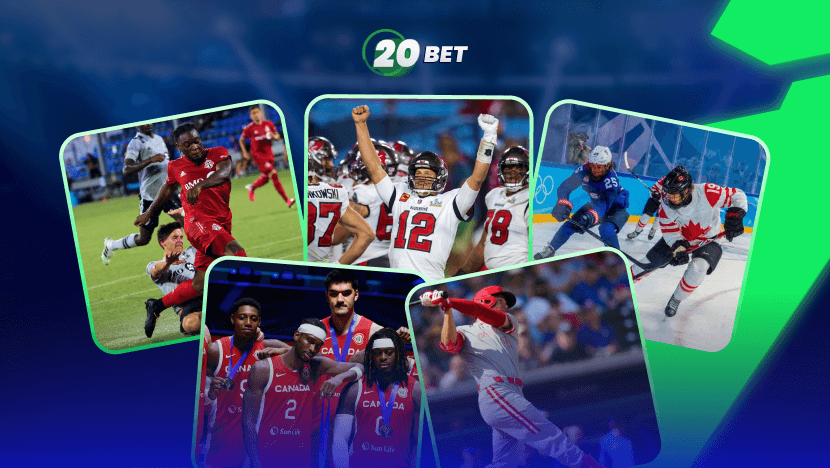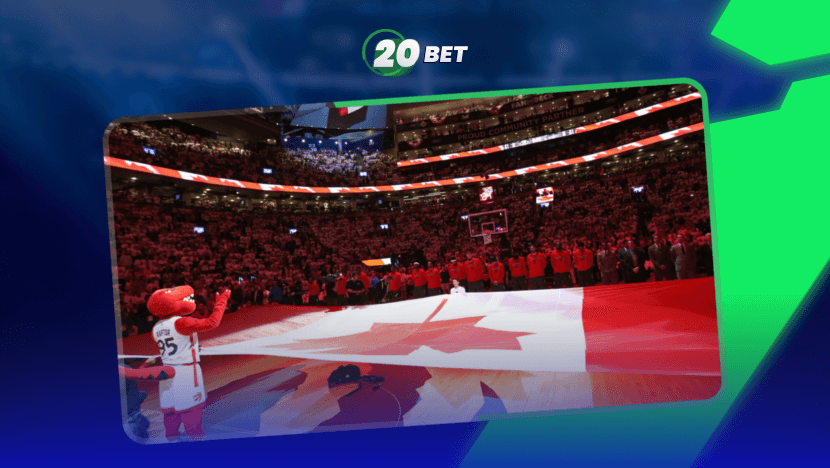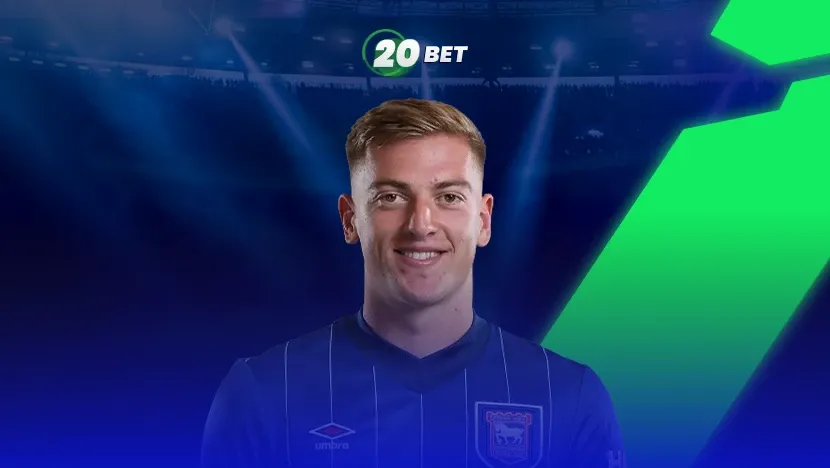These three fictional masterminds have very different ways to chase fortune. I’ve rewatched Scarface, The Dark Knight, and Breaking Bad, pulled real betting data, and mapped each character’s greed, audacity, instinct, and cunning onto real-world markets.
Here’s how their approaches work, where they crash, and how you can exploit their best bits without sharing their fate.
Why Do Villains Fascinate Us at the Window?
| Hidden Urge | How It Shows Up on 20Bet | Screen Parallel | Takeaway |
| Power | Max-limit wagers on headline events | Howard Ratner wiring $155K into a three-way Celtics parlay (Uncut Gems, 2019) | Big stakes can leverage small price moves, but a single lockout can wipe you out. |
| Risk | One “all-or-nothing” longshot parlay | Jim Bennett pushing around $400K onto one roulette spin (The Gambler, 2014) | Thrilling, but variance will chase you to defeat. |
| Control | Spreadsheet-driven statistical analysis | Walter White creating an algorithm in his RV (Breaking Bad, 2008-2013) | Numbers add edge until limits appear. |
| Defiance | Betting against favorites when the crowd piles in | Joker, with his love for chaos (The Dark Knight, 2008) | Sometimes, the only value lies where others refuse to look. |
Why it matters: Spot whether instinct, insight, or ego is driving your stake before the house does.
Tony Montana: Confidence Meets Ring, Track, and Diamond
“The eyes, Chico. They never lie.”
–Tony Montana, Scarface
According to Luxatic, the fictional kingpin is said to have amassed a net worth of around $900 million. His betting behavior would likely mirror that of real-life cartel whales. He’d pour straight into the deepest pools: six-figure punches on boxing title fights, headline horse racing bets, and chunky MLB futures where his stake alone can bend the odds.
Boxing Title Fights: Where Tony Could Move the Line
High rollers gravitate toward combat sports because one wager can dwarf an entire NFL Sunday handle.
In 2025, CNN reported that the Pacquiao-Mayweather fight was expected to pull $60-80 million in legal Nevada bets, double any previous fight. Big bets ($100k+) caused price swings of 20-25 cents in the final 48 hours.
Why it would’ve worked for Tony: a single six-figure blast can tip a boxing moneyline, letting him “show muscle” and scoop a juiced closing line.
Horse Racing Bets: The Derby Showdown
Barons love spectacle, and few spectacles top Derby Day.
| Kentucky Derby | Total Handle | Year-Over-Year Change |
| 2024 | $210.7 million | +12% vs. 2023 (New York Post) |
| 2025 | $234.4 million | +11% vs. 2024 (Reuters) |
In 2024, Mystik Dan entered the race with 18-1 odds and pulled off a surprise win, proving that overlooked underdogs can still deliver.
Major League Baseball Finals and Futures
Early 2025 Major League Baseball finals markets indicate that the Dodgers are pulling 28.8% of the money, according to BetMGM. Tony would likely fade that heat, back a quieter side, and then sell the ticket in August to exploit public bias.
The Joker: Turning Chaos Into a Bet Slip
The Joker, portrayed by Heath Ledger, wouldn’t be chasing returns on investment (ROI). He lives for chaos. His philosophy? Burn it all just to watch the smoke.
Long-Shot Parlays: Nine Clicks to Life-Changing Money
- A Las Vegas bettor turned $10 into $185,211 with a nine-leg tight-end touchdown parlay, as reported by the Las Vegas Review-Journal.
- Another futures ticket turned $100 into $80,960 before being cashed out, according to Business Insider.
Why it sometimes works: sportsbooks bake in a higher hold on parlays (15-30%), but the small-stake, high-payout cocktail feeds the Joker’s love of volatile outcomes.
Fading the Crowd: Bet the Disaster Scenario
The Joker wouldn’t hesitate to back an underdog with a real but underpriced path to victory, like the 18-1 Derby winner mentioned earlier.
Incident and Prop Markets: Micro-Moments, Macro-Mayhem
First yellow card, coin toss winner, next manager sacked – tiny markets where odds can’t be modeled perfectly. That unpredictability is the Joker’s sandbox.
However, keep in mind that limits are low and lines move fast. Fun? Absolutely. But should it be part of your core bankroll strategy? Probably not.
Walter White: Cooking Data for an Edge
“I did it for me. I liked it. I was good at it.”
–Walter White, Breaking Bad
The barrels hidden in the desert put Walter White’s net worth at around $80 million by season five, according to Business Insider. He keeps it by valuing method over impulse.
Building a Home-Brew Model
- Pull historical box score data, regress against closing lines, and you’ll often find a 1-2% edge in niche markets.
- Walter would automate updates, test out-of-sample, and then scale only when the edge held 500+ trials, prioritizing the pure method over impulse.
Spread Betting with Proprietary Algos
When your model says the Bulls should be -3.0, but 20Bet lists them at -5.5, you’ve found a potential edge. That means the sportsbook might be overvaluing the favorite. In this case, betting against the market means taking the underdog at +5.5, because your data suggests the line might be inflated.
Walter’s model would simulate thousands of matchups, adjust for injuries and pace, and only place a bet if the predicted edge (difference between his line and the sportsbook’s) was consistent over time. It’s not about winning every time. It’s about placing many small, high-probability bets where his model disagrees with the market enough to matter.
Arbitrage Betting: Guaranteed but Tiny Profits
How it works: find two opposing outcomes where the odds allow you to cover every result. You split your total stake so that, regardless of which side wins, you always get back more than you put in.
For example, with odds of 1.20 on the favorite and 8.00 on the underdog, you’d stake €86.95 on the former and €13.05 on the latter for a total of €100 and lock in a profit.
| Outcome | Stake | Return | Profit |
| Favorite wins | €86.95 at 1.20 | €104.34 | €4.34 |
| Underdog wins | €13.05 at 8.00 | €104.40 | €4.40 |
Example from Pinnacle’s public arbitrage tutorial, based on a €100 total stake.
Underdog Hunting: Value in the Tails
By weighting underdogs whose true win chance exceeds the implied probability, Walt replicates hedge-fund “value” screens. The trick? Accepting long losing streaks without emotion is tough for most of us, but it comes as second nature to Heisenberg.
The Dark Side: What Happens When Movie-Style Bets Hit Real-Life Rules
Big-screen swagger looks great in a montage, but sportsbooks run on math and limits, not dramatic music. Here’s what happens when villain-style tactics meet the real world:
| Risky Habit | What It Looks Like | Real-World Consequence |
| Aggressive staking (Tony Montana) | Hammering one event with huge, repeated bets. | Your balance can evaporate in minutes, and the book might slash your bet limits or even ban you. |
| Monster parlays (The Joker) | Stringing eight, ten, or twelve legs together for a lottery-sized payout. | House edge balloons, variance is brutal, and long losing streaks are almost guaranteed. |
| Constant arbitrage (Walter White) | Hopping between books to lock in tiny, “risk-free” profits. | Stakes get capped, promos dry up, and some operators close or restrict accounts that look too sharp. |
Even a real edge becomes an expensive popcorn fire if you ignore bankroll discipline and overlook the fine print. Treat every bet, no matter how clever, like real money on the line, because it is.
Keeping It Safe: Responsible Gambling Pointers
Even the boldest bankroll needs a seatbelt. No matter whether you channel Tony’s swagger, the Joker’s appetite for chaos, or Walter’s spreadsheet discipline, there’s one lesson every seasoned bettor eventually learns: an edge is worthless without guardrails. Think of the tips below as your pit crew that keeps your Formula One villainy on the track.
- Set a loss limit before every session. Decide the exact sum you can afford to lose, lock it in, and walk away when it’s gone.
- Track your results, even the ugly ones. A simple spreadsheet or notes app will suffice. You can quickly notice patterns when your wins and losses are laid out side by side.
- Schedule cool-off days after big wins and losses. Emotion, whether positive or negative, can hinder rational thinking. A 24-hour breather lets your adrenaline drain.
- Use the tools on hand. 20Bet’s deposit limits, reality-check reminders, and one-click self-exclusion are there so you can gamble tomorrow instead of quitting forever.
FAQ
What kind of bets would Tony Montana place first?

